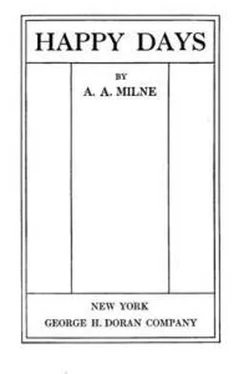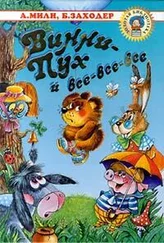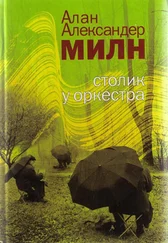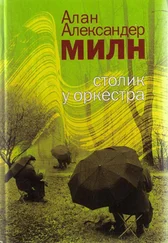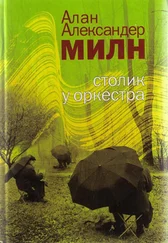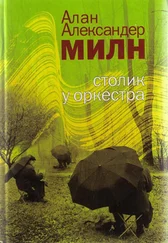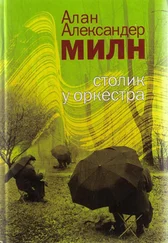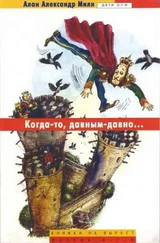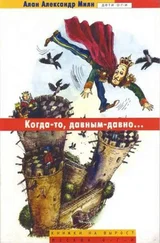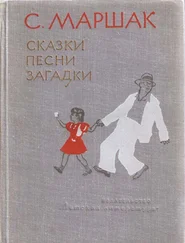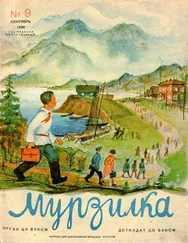Алан Милн - Happy Days
Здесь есть возможность читать онлайн «Алан Милн - Happy Days» весь текст электронной книги совершенно бесплатно (целиком полную версию без сокращений). В некоторых случаях можно слушать аудио, скачать через торрент в формате fb2 и присутствует краткое содержание. Год выпуска: 2014, Издательство: epubBooks Classics, Жанр: Юмористическая проза, на английском языке. Описание произведения, (предисловие) а так же отзывы посетителей доступны на портале библиотеки ЛибКат.
- Название:Happy Days
- Автор:
- Издательство:epubBooks Classics
- Жанр:
- Год:2014
- ISBN:нет данных
- Рейтинг книги:5 / 5. Голосов: 1
-
Избранное:Добавить в избранное
- Отзывы:
-
Ваша оценка:
- 100
- 1
- 2
- 3
- 4
- 5
Happy Days: краткое содержание, описание и аннотация
Предлагаем к чтению аннотацию, описание, краткое содержание или предисловие (зависит от того, что написал сам автор книги «Happy Days»). Если вы не нашли необходимую информацию о книге — напишите в комментариях, мы постараемся отыскать её.
Happy Days — читать онлайн бесплатно полную книгу (весь текст) целиком
Ниже представлен текст книги, разбитый по страницам. Система сохранения места последней прочитанной страницы, позволяет с удобством читать онлайн бесплатно книгу «Happy Days», без необходимости каждый раз заново искать на чём Вы остановились. Поставьте закладку, и сможете в любой момент перейти на страницу, на которой закончили чтение.
Интервал:
Закладка:
"Really?" said my man. "Well, I shall have to think about it. I'll let you know."
Of course, I knew what that meant.
With a third dog–lover to whom I spoke the negotiations came to grief, not apparently because of any faults of Chum's but because, if you will believe it, of my own shortcomings. At least, I can suppose nothing else. For this man had been enthusiastic about him. He had revelled in the tale of Chum's wickedness; he had adored him for being so conceited. He had practically said that he would take him.
"Do," I begged, "I'm sure he'd be happy with you. You see, he's not everybody's dog; I mean I don't want any odd man whom I don't know to take him. It must be a friend of mine, so that I shall often be able to see Chum afterwards."
"So that—what?" he asked anxiously.
"So that I shall often be able to see Chum afterwards. Week–ends, you know, and so on. I couldn't bear to lose the silly old ass altogether."
He looked thoughtful; and, when I went on to speak about Chum's fondness for chickens, and his other lovable ways, he changed the subject altogether. He wrote afterwards that he was sorry he couldn't manage with a third dog. And I like to think he was not afraid of Chum—but only of me.
But I have found the right man at last. A day will come soon when I shall take Chum from his present home to his new one. That will be a great day for him. I can see him in the train, wiping his boots effusively on every new passenger, wriggling under the seat and out again from sheer joy of life; I can see him in the taxi, taking his one brief impression of a world that means nothing to him; I can see him in another train joyous, eager, putting his paws on my collar from time to time and saying excitedly, "What a day this is!" And if he survives the journey; if I can keep him on the way from all delightful deaths he longs to try; if I can get him safely to his new house, then I can see him―
Well, I wonder. What will they do to him? When I see him again, will he be a sober little dog, answering to his name, careful to keep his muddy feet off the visitor's trousers, grown up, obedient, following to heel round the garden, the faithful servant of his master? Or will he be the same old silly ass, no use to anybody, always dirty, always smiling, always in the way, a clumsy, blundering fool of a dog who knows you can't help loving him? I wonder….
Between ourselves, I don't think they can alter him now…. Oh, I hope they can't.
XXXI
A Farewell Tour
This is positively Chum's last appearance in print—for his own sake no less than for yours. He is conceited enough as it is, but if once he got to know that people are always writing about him in books his swagger would be unbearable. However, I have said good–bye to him now; I have no longer any rights in him. Yesterday I saw him off to his new home, and when we meet again it will be on a different footing. "Is that your dog?" I shall say to his master. "What is he? A Cocker? Jolly little fellows, aren't they? I had one myself once."
As Chum refused to do the journey across London by himself, I met him at Liverpool Street. He came up, in a crate; the world must have seemed very small to him on the way. "Hallo, old ass," I said to him through the bars, and in the little space they gave him he wriggled his body with delight. "Thank Heaven there's one of 'em alive," he said.
"I think this is my dog," I said to the guard, and I told him my name.
He asked for my card.
"I'm afraid I haven't one with me," I explained. When policemen touch me on the shoulder and ask me to go quietly; when I drag old gentlemen from underneath motor–'buses, and they decide to adopt me on the spot; on all the important occasions when one really wants a card, I never have one with me.
"Can't give him up without proof of identity," said the guard, and Chum grinned at the idea of being thought so valuable.
I felt in my pockets for letters. There was only one, but it offered to lend me £10,000 on my note of hand alone. It was addressed to "Dear Sir," and though I pointed out to the guard that I was the "Sir," he still kept tight hold of Chum. Strange that one man should be prepared to trust me with £10,000, and another should be so chary of confiding to me a small black spaniel.
"Tell the gentleman who I am," I said imploringly through the bars, "Show him you know me."
"He's really all right," said Chum, looking at the guard with his great honest brown eyes. "He's been with us for years."
And then I had an inspiration. I turned down the inside pocket of my coat, and there, stitched into it, was the label of my tailor's with my name written on it. I had often wondered why tailors did this; obviously they know how stupid guards can be.
"I suppose that's all right," said the guard reluctantly. Of course I might have stolen the coat. I see his point.
"You—you wouldn't like a nice packing case for yourself?" I said timidly. "You see, I thought I'd put Chum on the lead. I've got to take him to Paddington, and he must be tired of his shell by now. It isn't as if he were really an armadillo."
The guard thought he would like a shilling and a nice packing case. Wood, he agreed, was always wood, particularly in winter, but there were times when you were not ready for it.
"How are you taking him?" he asked, getting to work with a chisel. "Underground?"
"Underground?" I cried in horror. "Take Chum on the Underground? Take― Have you ever taken a large live conger–eel on the end of a string into a crowded carriage?"
The guard never had.
"Well, don't. Take him in a taxi instead. Don't waste him on other people."
The crate yawned slowly, and Chum emerged all over straw. We had an anxious moment, but the two of us got him down and put the lead on him. Then Chum and I went off for a taxi.
"Hooray," said Chum, wriggling all over, "isn't this splendid? I say, which way are you going? I'm going this way…. No, I mean the other way."
Somebody had left some of his milk–cans on the platform. Three times we went round one in opposite directions and unwound ourselves the wrong way. Then I hauled him in, took him, struggling, in my arms and got into a cab.
The journey to Paddington was full of interest. For a whole minute Chum stood quietly on the seat, rested his fore–paws on the open window and drank in London. Then he jumped down and went mad. He tried to hang me with the lead, and then in remorse tried to hang himself. He made a dash for the little window at the back; missed it and dived out of the window at the side, was hauled back and kissed me ecstatically in the eye with his sharpest tooth…. "And I thought the world was at an end," he said, "and there were no more people. Oh, I am an ass. I say, did you notice I'd had my hair cut? How do you like my new trousers? I must show you them." He jumped on to my lap. "No, I think you'll see them better on the ground," he said, and jumped down again. "Or no, perhaps you would get a better view if―" he jumped up hastily, "and yet I don't know―" he dived down, "though of course, if you― Oh lor'! this is a day," and he put both paws lovingly on my collar.
Suddenly he was quiet again. The stillness, the absence of storm in the taxi, was so unnatural that I began to miss it. "Buck up, old fool," I said, but he sat motionless by my side, plunged in thought. I tried to cheer him up. I pointed out King's Cross to him; he wouldn't even bark at it. I called his attention to the poster outside Euston Theatre of The Two Biffs; for all the regard he showed he might never even have heard of them. The monumental masonry by Portland Road failed to uplift him.
At Baker Street he woke up, and grinned cheerily. "It's all right," he said, "I was trying to remember what happened to me this morning—something rather miserable, I thought, but I can't get hold of it. However it's all right now. How are you ?" And he went mad again.
Читать дальшеИнтервал:
Закладка:
Похожие книги на «Happy Days»
Представляем Вашему вниманию похожие книги на «Happy Days» списком для выбора. Мы отобрали схожую по названию и смыслу литературу в надежде предоставить читателям больше вариантов отыскать новые, интересные, ещё непрочитанные произведения.
Обсуждение, отзывы о книге «Happy Days» и просто собственные мнения читателей. Оставьте ваши комментарии, напишите, что Вы думаете о произведении, его смысле или главных героях. Укажите что конкретно понравилось, а что нет, и почему Вы так считаете.
